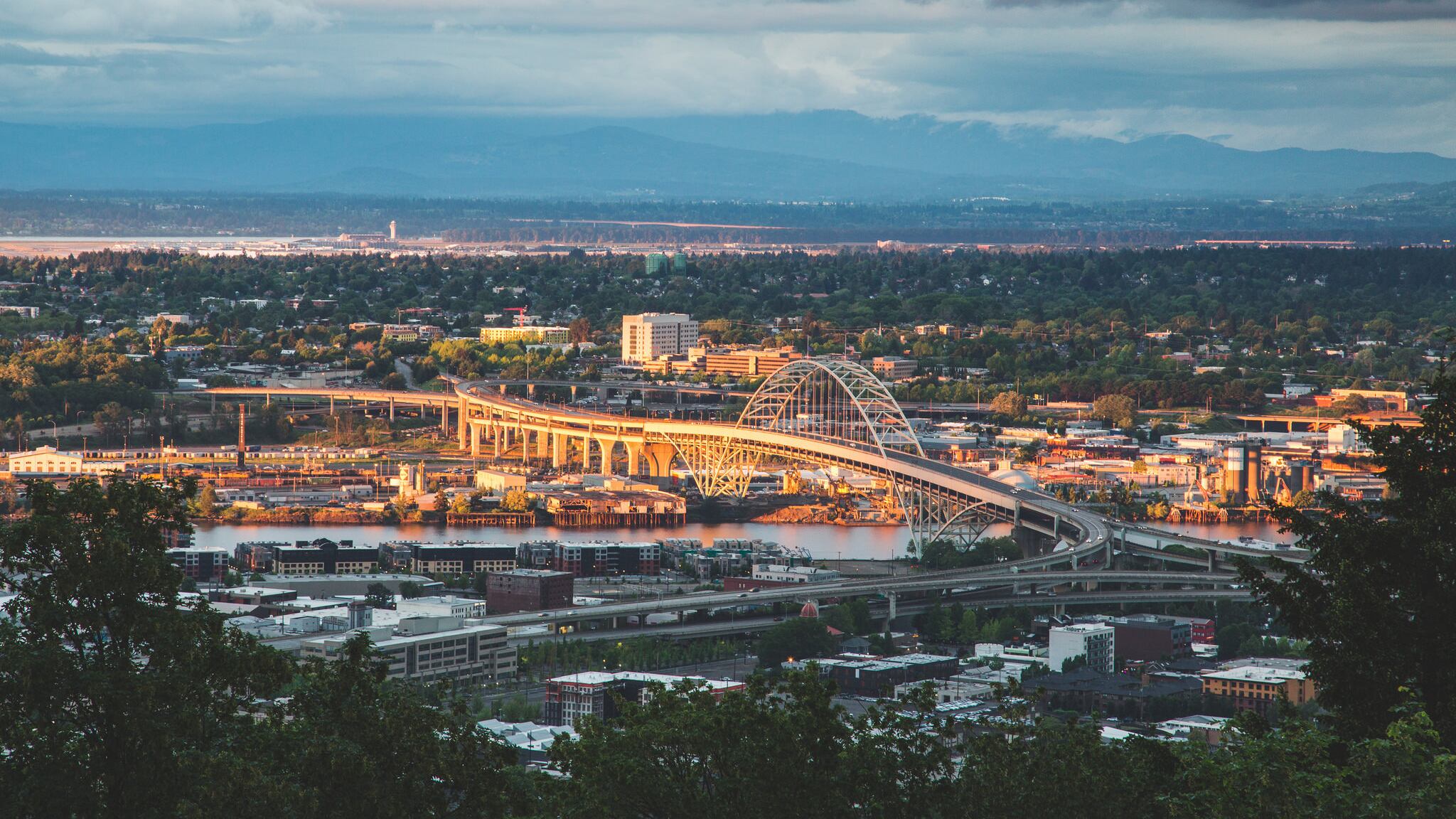Oregon transportation officials agreed to ask the federal government's permission to toll sections of two Portland-area Interstate highways—and say they're considering widening that plan to include all the region's freeways.
The Oregon Transportation Commission, meeting in John Day, Ore., voted unanimously for a plan to use congestion pricing on sections of I-5 and I-205.
"Of of the top four challenges in the state of Oregon is congestion in the Portland metropolitan area," said Commission Chairwoman Tammy Baney. "And we heard that in Lakeview, we heard that here in Grant County."
Sean O'Hollaren, a state transportation commissioner, said he voted for tolls because Portland traffic jams were making the city all but impossible to navigate. "People would not go out to dinner because they didn't want to deal with traffic," he said.
The plan to toll I-5 and I-205 has been met with some skepticism. Critics on one side—including Republicans in both Oregon and Washington—oppose any toll that doesn't include new road construction. And in Portland, city officials and the Port of Portland want the state to go further—and toll all of the region's freeways, not just sections.
Related: Unlikely allies are joining forces to agitate for an unprecedented tolling plan across Portland.
Meanwhile, some Portland residents fear their neighborhoods could suffer from increased traffic as people use surface streets to avoid tolls on the highways.
O'Hollaren said that people in those neighborhoods are already being faced drivers trying to avoid traffic jams—and the the plans to toll would not add to the issue, but rather encourage people to use other modes of transportation in downtown Portland.
"We have not done enough to provide alternatives to incentivize carpooling, transit, bus—other ways to get around that space," he said.
"We really heard from a lot of people and a lot of different voices," he added. "I don't think that there's a system or plan that we can put in place that would solve all of their concerns or address all of them," O'Hollaren said.
He said that the best course of action was to seek federal approval for the initial tolling plan and try to solve any problems that arise.
The approval marks a step in a plan that will take years to implement.
"This does not mean begin tolling," said ODOT Region 1 Manager Rian Windsheimer. "This is not the end of the process, this is the very beginning."
It also likely marks the start of a pitched political war. Republicans led by state Rep. Julie Parrish (R-West Linn) are backing a potential ballot measure that would require voter approval on tolls. And President Donald Trump will be lobbied by some southwest Washington elected officials to quash federal approval.

